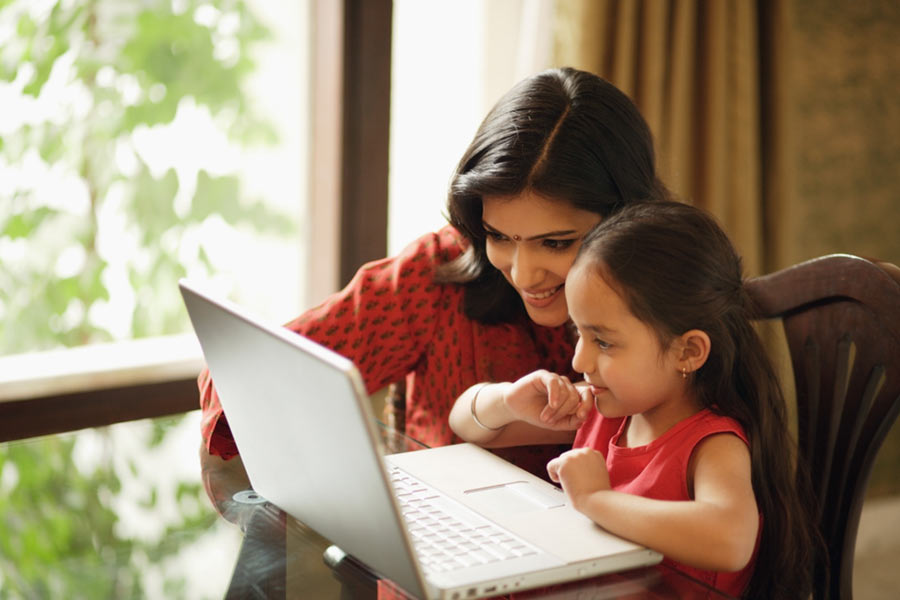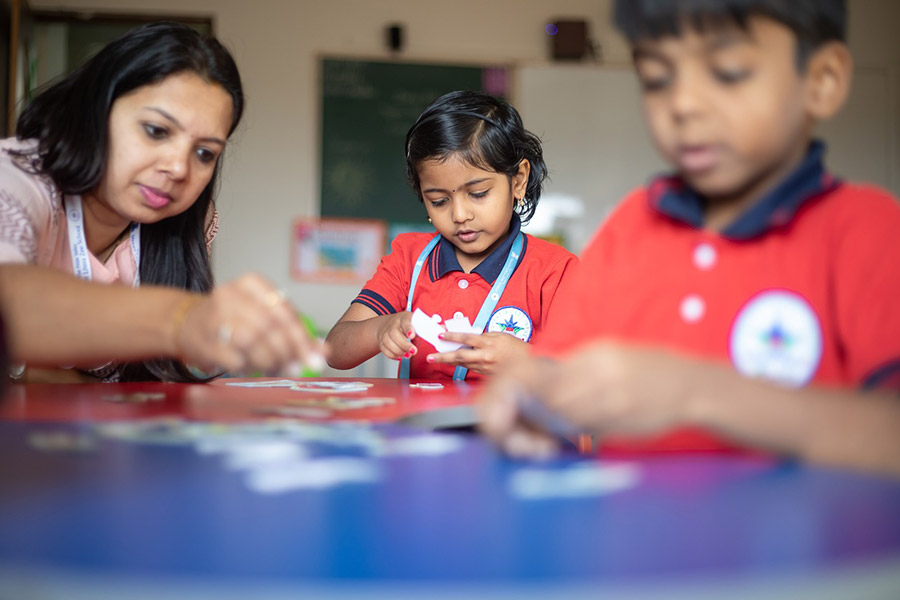Parenting is a whirlwind. One minute you’re beaming with pride about your child, the next you’re juggling to-do lists, tantrums and a feeling of “not doing enough”. We all dream of raising happy, healthy kids, but the constant pressure to be the “perfect parent” can leave us feeling burnt out, disconnected and guilty.
I have seen all this firsthand. In my work as a Social-Emotional Learning (SEL) consultant, I’ve connected with parents from all walks of life — from joint families to single-parent households, from those navigating the complexities of the Indian education system for the first time to those struggling to balance demanding careers with their children’s needs. And the common thread? That overwhelming feeling of carrying an invisible weight.
Take, for example, Anu, a mother who confided in me: “Every morning I drop my little one off at daycare and feel guilt in my stomach. I feel like I’m choosing my career over her.” Or think of Raj, a father who spent hours each night hunched over textbooks with his son, only to feel his heart sink with each disappointing test score. “It’s this constant pressure,” he admitted, “to be ‘on call’ for every assignment, every test. It leaves me drained.”
These stories, these struggles, are not unique. They are a reflection of the challenges so many parents face today. With rising rates of parental burnout globally and the unique stressors in India, the question arises — how can you prevent this burnout while strengthening your bond with your children?
Consider creating a ‘Progress Board’ where your child tracks their own learning

SEL equips parents and children with the skills to navigate life’s rollercoaster of emotions TT archives
Social-Emotional Learning (SEL), a powerful tool gaining momentum in schools, can also be our lifeline at home. It’s about equipping ourselves and our children with the skills to navigate life’s rollercoaster of emotions, build resilience and find moments of calm in the chaos.
How can we integrate SEL into our lives?
Parents often feel they need to micromanage their child’s education, believing that their involvement directly correlates with academic success. I often hear parents express feelings of inadequacy, saying things like, “I feel like I'm not doing enough” or “No matter what I do, I can’t get my child to achieve good grades”. This constant pressure to be available for their child creates a cycle of stress and self-doubt.
To reduce this load, consider creating a “Progress Board” where your child tracks their own learning. This could be as simple as a whiteboard or a piece of paper pinned to the fridge. The board helps children break down their tasks, such as school assignments or personal goals, and track their progress independently. Picture a weekly ritual where you sit down together, not as a stressed-out tutor and a reluctant student, but as a team mapping out a plan for the week ahead.
The quality of time with your children matters more than the quantity

Children remember the moments when they have their parent’s undivided attention far more than the hours spent together in silence or distraction TT archives
Balancing work and family life is a major source of guilt and exhaustion for many parents. One mother I spoke with shared her guilt about leaving her child at daycare while she worked. Another father confided that he only sees his children on weekends and feels distant from them during the week. This fear of not being “attached enough” to their children increases the emotional strain.
Remember that the quality of time matters more than the quantity. Children remember the moments when they have their parent’s undivided attention far more than the hours spent together in silence or distraction. Try scheduling “Quality Time Windows” — 10-15 minute pockets during the day where you give your full attention to your child. These moments could include a quick chat over breakfast, a short walk after dinner, or a card game before bed.
As a Teach For India fellow, I witnessed the particular struggles faced by parents of first-generation learners, especially those from daily wage-earning families. One parent expressed frustration, saying: “I don’t know how to help my child study… I don’t know English or maths myself.” For these parents, the inability to help with homework adds to the emotional toll.
For parents who may not be able to provide direct academic support, there’s the magic of “Teach Back” sessions. Imagine your child, beaming with pride, explaining their latest lesson to you, solidifying their own understanding while strengthening your bond.
Parents often grapple with maintaining their personal identities while fulfilling their roles as caregivers, leading to guilt and neglect of their own needs. One mother shared her internal conflict over taking out time for herself. “I felt guilty for going on a holiday without my kids,” she said. “Even when I joined a dance class, it felt like I was abandoning them.” This emotional exhaustion is common among parents who struggle to balance their personal desires with family responsibilities.
Create a safe space for emotions to flow freely. Picture a weekly “Family Check-In” where everyone, from the youngest to the oldest, shares their highs and lows, their joys and frustrations. It’s about fostering a culture of open communication, where vulnerability is not a weakness but a strength. This can help children see you as human and take some emotional load off your chest.
How to overcome decision-fatigue with the ‘Two-Choice’ rule

While SEL strategies can be transformative, implementation is not without challenges TT archives
Constantly having to make decisions for their children can take a toll on parents, leading to decision fatigue. One father confided in me that he struggled with whether to allow his teenage daughter to have a phone, worrying about how it might affect their relationship. This ongoing process of making choices and second-guessing their outcomes can lead to anxiety and stress.
Instead of getting bogged down in endless options, try to simplify the process with the “Two-Choice Rule”. “Would you like to wear the blue shirt or the red one?” “Do you want to read a book or play a game before bed?” It’s about giving our children a sense of agency while preserving your sanity.
While these strategies can be transformative, implementation is not without challenges. In joint households, differing values and parenting styles may complicate efforts to actualise SEL. Additionally, busy schedules may make introducing SEL practices feel like yet another task. However, bringing SEL into our homes isn’t about adding another item to our already overflowing plates. Start small. Set aside 10 minutes a day for meaningful conversations, practise emotional regulation, or be more present during shared moments. These small steps can significantly reduce stress and strengthen family bonds.
By prioritising your emotional health and modelling these practices for your children, you can transform your family dynamic. It’s time to lighten the invisible weight of parenting and bring SEL home for the benefit of everyone involved.
Aakanksha Agrawal is an experienced educator specialising in Social-Emotional Learning (SEL). She holds an MEd in the Psychology of Education from the University of Manchester. She is also the founder of It's Not a Child’s Play, a platform dedicated to SEL for all

